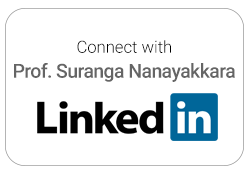- Exclusive Interview with Professor Suranga Nanayakkara by Hasika Nanayakkara of Lanka Business News !
Gems under the earth are found only when dug deep and usually left unnoticed. Lanka Business News recently came across such a gem left unnoticed and thought of getting to know more of this unique personality. Holding a Ph.D. in Electrical and Computer Engineering, spending his valuable time looking for ways to help the differently-abled, and trying to make a better world for all of us by inventing devices with uncommon uses of technology, he is Professor Suranga Nanayakkara.
Professor, as a professional who has made an outstanding contribution to multiple disciplines, please tell us a bit about your journey so far.
I did my primary and secondary education at Royal College, Colombo. From my A/L results, with a top island rank, I could have gone to the University of Moratuwa. But opted to do my BSc and my Ph.D. at the National University of Singapore (NUS). While I was in Singapore, there were special programs for students to get foreign exposure. Through one of those programs, I got a chance to spend some time at the University of Birmingham in the United Kingdom as an undergraduate and then got the opportunity to do a Graduate Research attachment at the University of Southern California. After Graduation, I was funded by Singapore for a post-doctoral experience at the Massachusetts Institute of Technology (MIT) Media Lab in Boston. During that time, Singapore Government together with MIT was in the process of setting up a new University called “Singapore University of Technology and Design” with the aim of producing technology-savvy Inventors and Leaders. So, I was fast-tracked to become an Assistant Professor at this new University and set up my Research Lab “Augmented Human Lab” there. I was there for seven years as a professor setting up the Lab and scaling it up.
In 2018, I was Head-hunted for a program which the New Zealand Government came up, with to accelerate their innovation entrepreneurship ecosystem where I and my entire team were moved to the University of Auckland. Since then, I have been working there, re-establishing my Lab and focusing to align our work so that there is an Entrepreneurial, Societal, and Academic impact in Auckland, benefiting the entire country.
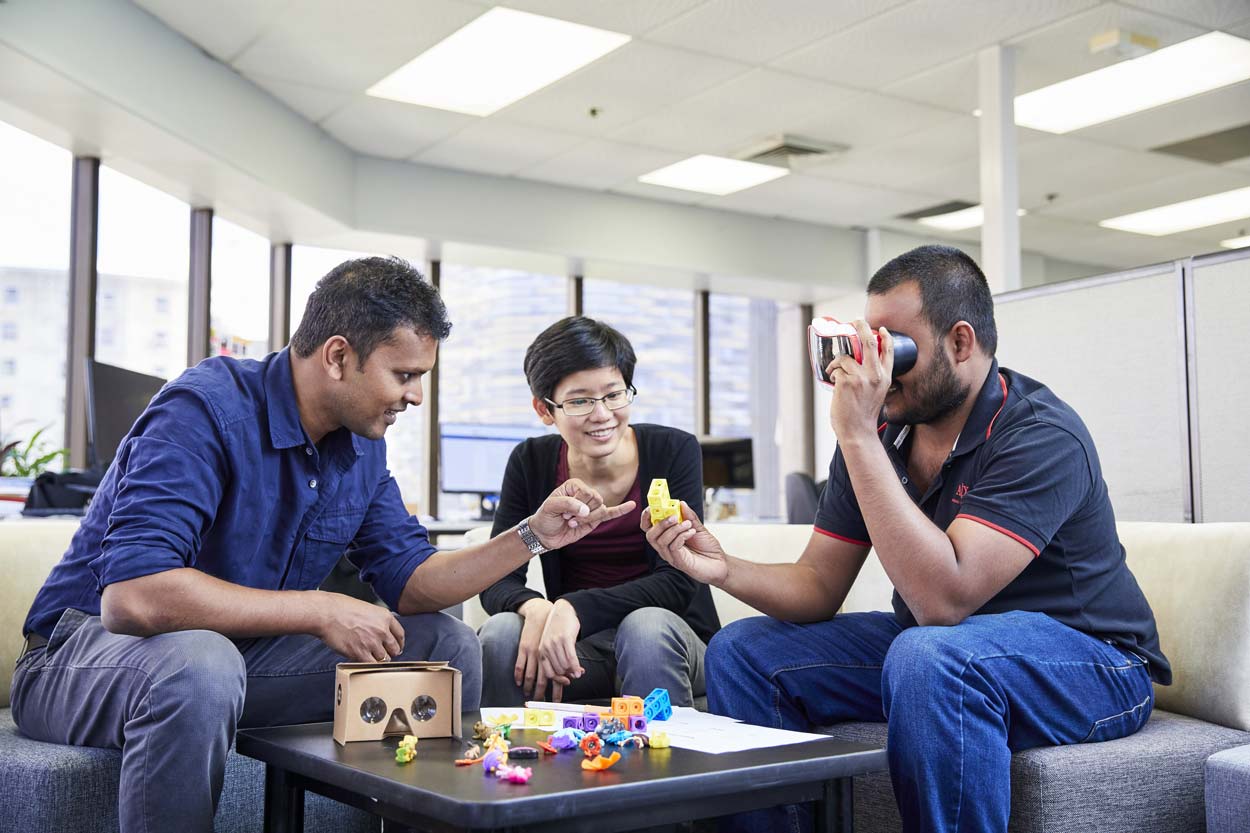
You are into creating Assistive Augmentations. What drove you to wrap your career around designing intelligent human-computer interfaces?
There were a couple of reasons and out of which, one of the turning points was my personal experience.
When I left Sri Lanka and joined the National University of Singapore as an Undergraduate, I barely had any experience in Smart Devices and Computers. My first semester at NUS was quite hard given that I found it difficult to deal with these computers. First, I thought that it was due to lack of experience and then I thought, about whether these devices are actually as smart as they could be. If they are smart, they should have known what I knew and adapted themselves to support me. I saw this as an opportunity were to make these devices more human-centered, adapting to users, as opposed to users having to learn every new technology.
I was also inspired by the gifted individuals who were able to experience the world in a different way. For example, there is a musician in London, Evelyn Glennie, who is deaf and plays the drums unbelievably. And a boy in the United States, Ben Underwood, who is blind and plays Basketball. I wondered whether we can use technology to create similar capabilities for everyone else.
Combining my own experience and other use cases, I was convinced that we have not fully utilized what technology is able to do. Therefore, I wanted to find true, intelligent human-computer interfaces with the focus of the human experience is in the front face and technology going to the background just quoting what we are aspired to do.
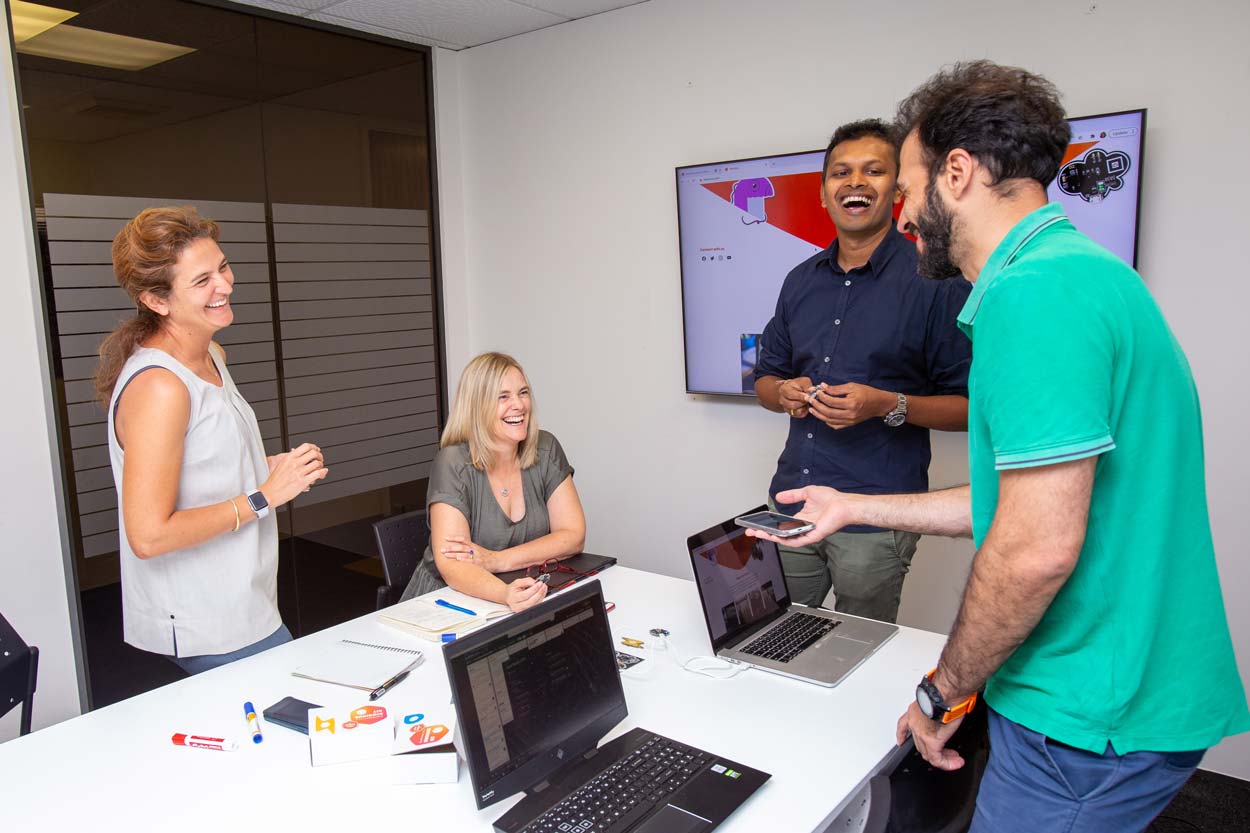
Apart from being an Associate Professor and the Director of the Augmented Human Lab at Auckland Bioengineering Institute, you are attached to many organizations based in New Zealand and in Sri Lanka. Do these organizations do anything in common? And what is your role?
As an example, I am part of the setup in Sri Lanka called “Say Hello”, which is aiming at supporting young kids in Sri Lanka to be able to confidently speak in English. We have used technology to provide personalized language learning support and this has a Social and also a commercial impact. This Application has been downloaded more than 85,000 times and also it is being used by a few start-ups. Further, in our advanced program, we have also trained more than 100 people and currently, about 50 students are being trained using this facility.
What all these have in common are, cutting-edge technology emerged from knowledge, a team of people who are running these as self-sustaining entities, and all these organizations are commercial, social, and knowledge impact-driven.
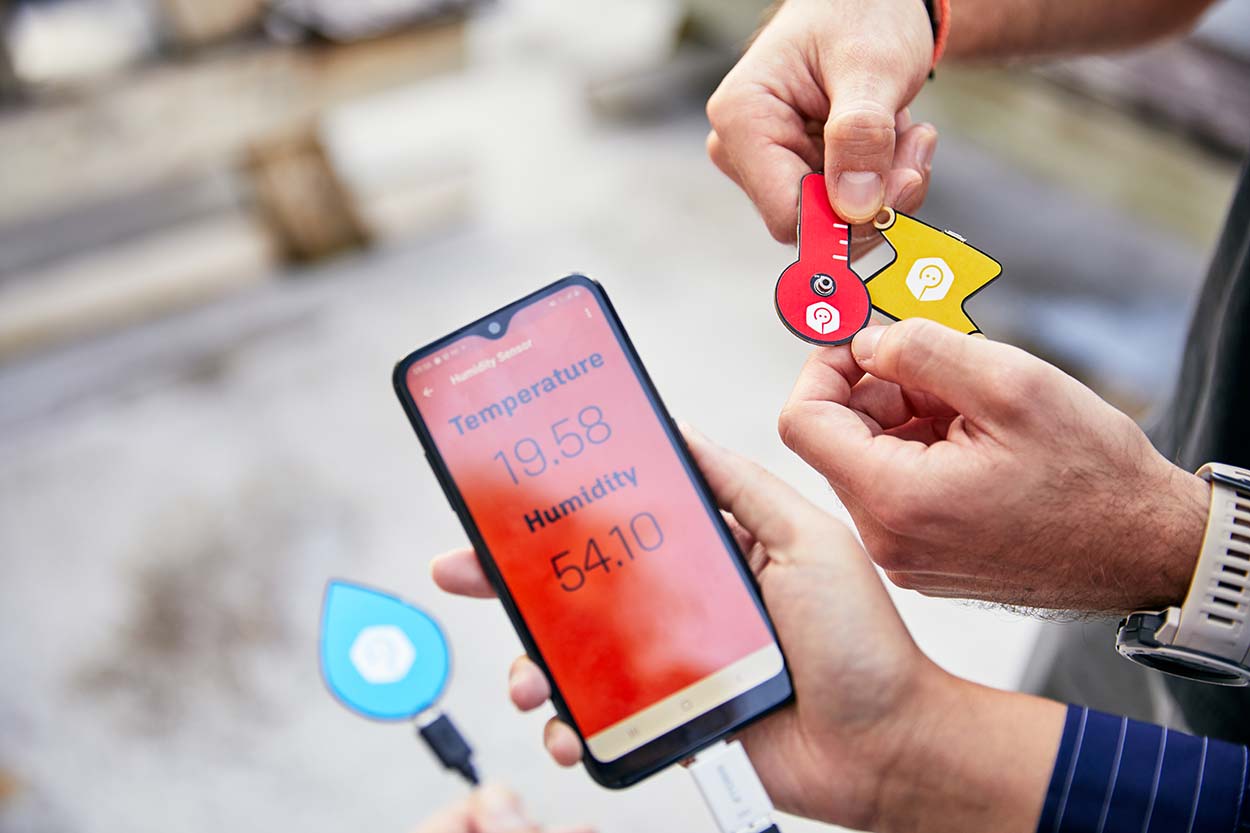
Amongst the vast number of projects you have been involved in, which project do you think is one of its kind and stands out from the rest? And why?
We have done over 80 projects, including Door Sensors for the deaf, Assistive Tech for Blind, Blood Detector for Dialysis Patients, and Science Kits which are being used by 4000 kids as a trial in New Zealand.
All these projects are unique by their own characteristics. That is the main reason why we were able to produce high-quality research papers.
However, from the Commercial standpoint, our work developing the new self-supervised Learning Technique where one’s emotions and verbal signals are captured from the smart devices to understand people can be picked as the project with the highest Commercial potential.
If we are looking at Projects that are Life-Changing, the Music Sensory Substitution (MuSS) Bits and OM, a smartwatch-like device that helps a deaf person to experience music through vibration. I have installed a chair with a similar concept, in a deaf school in Sri Lanka and it is being used since 2009 and has had a huge impact on those kids.
Finally, I would say the Kiwrious, “The Science Learning” project as the project that has a large-scale Societal impact. This project was done with the Ministry of Business and Innovation of New Zealand to build interest in science among kids. Kiwrious includes a sensor kit and an online Learning Portal to provide the learning experience to kids and currently, this runs as a National Pilot program since mid-2021. Not only this will have a large impact on how science is taught and learned in New Zealand but also this will encourage kids to get involved in Science and Technology at a very young age and become future Scientists, Technologists, and Leaders.
What are the common challenges and obstacles you come across when you work on these projects? And how do you overcome them?
I have been very fortunate not to have any funding or human resources issues for my projects and got all the time in the world with such an understanding family, which are some of the greatest strengths.
The biggest challenge I had to overcome with my projects was to allocate enough time to understand the problem properly and hold the temptation of jumping to conclusions without understanding the problem. For this, we had to do several iterations of re-visiting the problem to understand what we have not known before. We are now spending much time trying to understand the actual depth of the problem and the scope of work so that we can plan, develop and execute the project smoothly.

Will you be able to give us a hint of an interesting future development?
Within the Intelligent Human-Computer interfaces, I am very keen to think of Cognitive Augmentation, which is understanding things and providing information in a way we can make better decisions where Cognitive Psychology, Computer Science and Engineering come together. Or in other words, designing Intelligent Human-Computer interfaces that counterpart human brain to provide accurate information at the right time for better decision making.
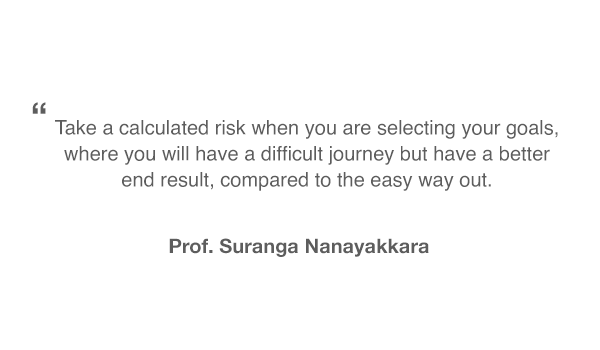
What is your message to the young ICT professionals who are dreaming and working really hard to be game changers?
My answer will not be specific to ICT professionals but it will be relevant to all youngsters in their mid-career level, who are trying to be successful and make an impact.
My first advice is, take a calculated risk when you are selecting your goals, where you will have a difficult journey but have a better end result, compared to the easy way out. And when you take the difficult path, you will fail many a times. But you must take those failures as lessons, to continue the journey. Finally, the journey must have a goal to solve a problem that will show you a clear direction and you must keep your determination and dedication throughout until you achieve your goal.
The second thing is, to have fun with what you do. When you like what you do and when you see you are getting closer to your goal every day, that will give you the required energy and will not make your journey a painful experience.
Finally, tell your story. This allows you to share your experience with others and open up avenues for others’ input. Which in turn will give you better ideas and will also help others in their endeavors.
###
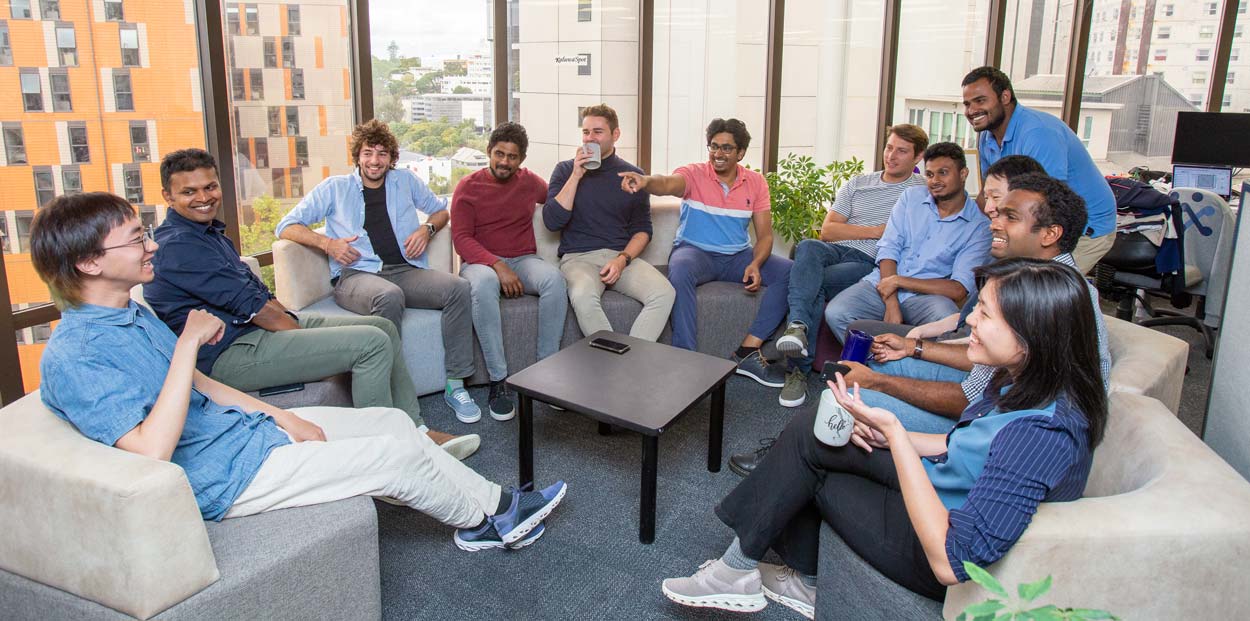
Lanka Business News would like to thank Professor Suranga Nanayakkara for his valuable time spent with us to have this exclusive interview, and also for the contribution he has done so far to the betterment of society. Lanka Business News wishes him all the best for his ongoing projects and hopes to see more of his impactful inventions in the future.



